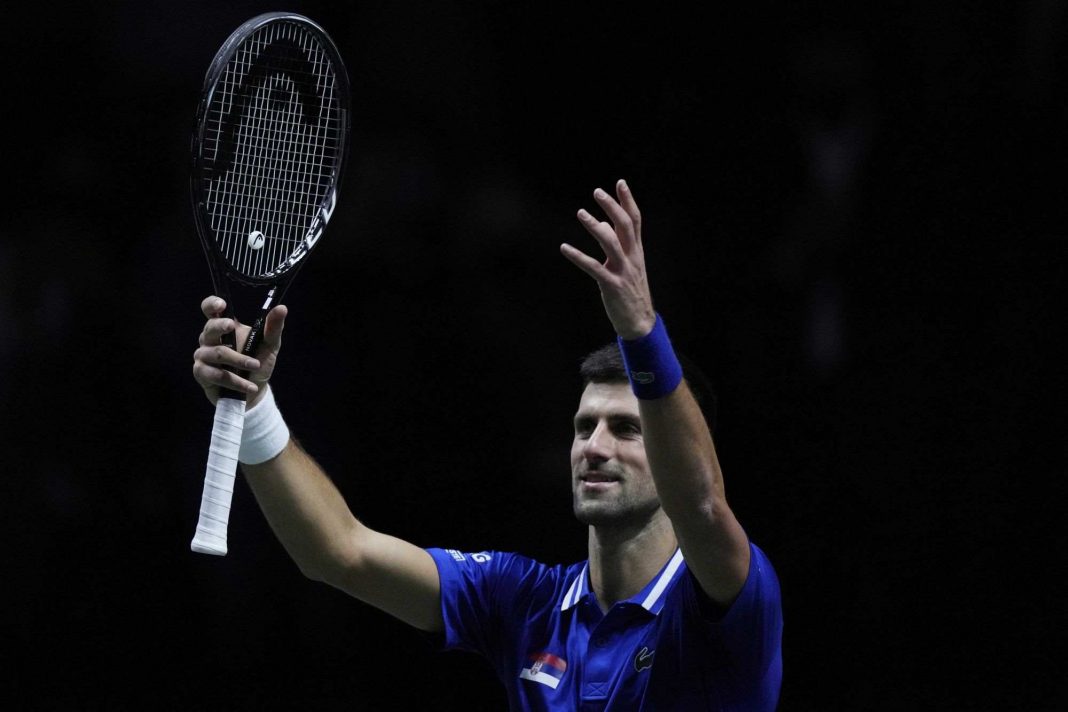In order to prepare for his rematch against Rafael Nadal at the Australian Open, Novak Djokovic spent the whole day on Wednesday travelling from Dubai to Australia. He was scheduled to begin his defence of the Australian Open singles title on Thursday.
Following a 10-hour standoff with government officials at Melbourne International Airport, where he was held in a room overnight over the validity of his visa and questions about the evidence supporting a medical exemption from a coronavirus vaccine, he was informed on Thursday that he would be required to leave the country. As a result of the exemption, Djokovic, a 20-time Grand Slam event winner and one of the most well-known athletes in the world, was expected to play in the Australian Open despite the fact that he had not had the required vaccination.
Despite the fact that Djokovic did not leave the country immediately, his team filed a court appeal to the verdict on Thursday. The tennis star’s representative did not immediately reply to demands for comment.
For Djokovic, the sequence of events represented a startling 180-degree turn: he went from being granted special, last-minute permission to compete in the Open, to boarding a transcontinental flight, to being essentially told by Australia’s prime minister that he was not welcome in the country in less than 24 hours.
During the last two years, the epidemic has wrecked havoc on a wide range of sporting activities. Major sporting events were held in venues that were almost empty. The virus was discovered in the bodies of star players only days before they were scheduled to compete, prompting them to be quarantined.
Even though Djokovic is one of tennis’ most divisive characters, the scenario around him was one that any of them could have dealt with well. It all came down to a confrontation between a sports superstar and the most powerful leader in one of the world’s most prosperous countries, where government officials, citizens, the media, and even some fellow players criticised the exemption, causing the sudden shift in policy to appear to be the catalyst for it.
Especially in Australia, where egalitarianism is revered as a sacred principle — and where “the tennis,” as the Open is known, is also adored by what appears to be an entire nation of sports fans, the decision is certain to become another flashpoint in the debate about vaccines and how the pandemic should be managed now.
The Australian Border Force said in a statement on Thursday that it will “continue to ensure that people who arrive at our border comply with our laws and entry criteria.” It has been confirmed by the Australian Border Force that Mr. Djokovic failed to present sufficient documentation to fulfil the entrance criteria for Australia, and that his visa has been cancelled as a result.”
With this controversy, Djokovic’s career has been littered with them, virtually all of them have been brought on by the conduct of a champion who can be just as stubborn and unyielding off the court as he is on it.
Tennis Australia’s chief executive, Craig Tiley, stated in a statement issued later that day that players requesting an exemption have to pass muster with two panels of medical specialists before being granted the exemption. Personal information was redacted as part of the procedure to guarantee that individuals’ privacy was protected.
Tiley said in a television appearance on Wednesday that 26 players had sought for an exemption and that “a number” of them had been given the privilege. The vaccines were administered to 99 percent of the more than 3,000 participants who travelled to Australia to attend the competition, according to Tiley. One of the medical conditions that qualified them for a waiver was Covid-19 infection within the previous six months, while Australian health authorities said late last year that a recent infection would not necessarily qualify them for a waiver.
It was expected that Djokovic, who is tied with Rafael Nadal and Roger Federer for the most Grand Slam men’s singles victories with 20, would win his 21st in Melbourne, where he has won nine titles. Melbourne is home to a tiny but devoted Serbian expatriate population, which attends all of Djokovic’s matches at Rod Laver Arena, the Open’s main court, and provides him with uncommon and passionate support away from his native country, despite his status as probably the best player in history.
Despite the fact that the men’s and women’s professional tennis tours do not need vaccinations, tennis authorities are at the mercy of the local, state, and national governments in power in the areas where competitions are conducted.
Tennis tournaments such the French Open, Wimbledon, and the United States Open, which take place in late spring and summer, have not yet announced if a vaccination would be necessary.

